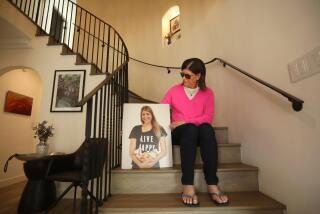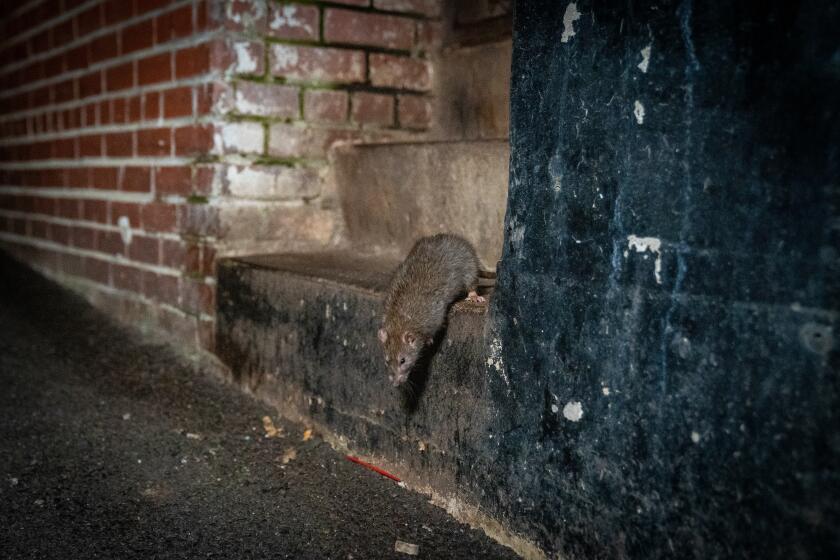‘Let Me Know More About Sisters Like Me’ : The cancer survivor stories usually stop short of describing life after metastasis.
- Share via
I am testy and still angry. I read all the articles about breast cancer last year, thirsting for real stories about what happens after metastasis.
We call it “mets.” A dirtier term than cancer, because it means spreading from the original cancer site. Somewhere, in the unknown dark tunnels and channels and walls and voids in the body, “mets” becomes a monster, bursting from the original, containable, controllable, nonmisbehaving tumor (hopefully less than 2 centimeters, and no lymph-node involvement, thank you).
Funny, how we younger survivors aren’t interviewed much. It must be painful for the public to hear how we yearn to know if we’ll see our children graduate from grammar school, much less see our grandchildren. It must be painful to print that a lot of times early detection does nothing--for some of us. We did everything right, and we need a little support in these articles on breast cancer; some positive articles on long-term survivors of recurrences and metastasis.
I’m only 39, and I’ve been dealing with this for five years. I was an early bird; my tumor was less than 2 centimeters. I had all negative nodes. I took Tamoxifen, the wonder drug. Yet I still fell in the unfortunate 5% with metastases. I had more chemo, more radiation and a stint at City of Hope for a stem-cell transplant.
I heard on the radio that breast cancer is the No. 1 killer of black women. I qualify. Know what? I had to beg my original oncologist to give me the breast cancer cell blood test. When he finally did--three years after my original surgery--it turned up positive. Had I waited another six months, it would have been “all over the place,” according to my primary doctor.
I want more articles this year on minority women like me, trying to tackle the HMOs and possibly winning. If there’s one thing I’ve learned through this horrific experience, it is that you’re dead-- absolutely--if you’re not smart.
Maybe everybody turning 40 learns that little things aren’t worth bothering about, and love for family, children, mates is really all we actually own. Maybe everybody at 40 learns to appreciate jazz and shrimp and homemade Mother’s Day plates and school concerts and Cub Scouts and soft kisses and mutts and miniature flower pots, I don’t know. But I sure want to read about hard-core survivors like me, people who have been through the atomic bomb of chemotherapy and keep on keeping on.
Helene, a wonderful counselor who ran the Vital Options group that folded a few years ago, visited my bone marrow support group the other night. She said that all the cancer literature over the past 20 years advocates positive thinking and blames the victim forinternalizing problems and so forth, and that it’s all wrong. In fact, she said, it’s the same thing that happened to tuberculosis patients in the 1800s. She’s seen cancer patients who did everything right: thought the right thoughts, ate the right food, never cried, ranted, raved. Still they died. Then she saw cancer patients who complained, never prayed, who smoked, drank, ate Big Macs for breakfast--and they’re still alive. It’s OK, she said, to feel envious of women who have not been affected by this, who have never dealt with hair loss, breast demolition, radiation rads. The point is, it’s hard to read only one side of things. Tell us something we don’t know. Tell us how to deal with going on with life as if we still have a life.
I believe in positive thinking, helping the immune system. I believe in attempting to control my destiny with vitamins, herbs and doctor visits. I also believe that after that, it’s out of my hands. But sometimes I have visits from the terrible monster, mets, and I petrify myself with images of really wicked nasty big-C-cells in the dark crevices, tunnels, walls and recesses of my body. Please, let me know more about sisters like me.






